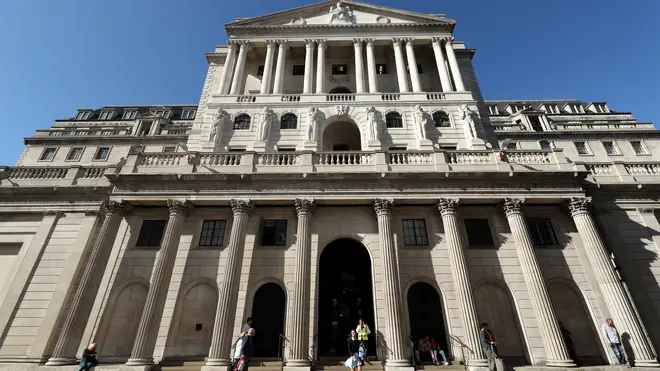
Henry Riley 4am - 7am
25 January 2021, 00:04

The Bank has helped keep many large businesses afloat during the lockdown.
The Bank of England risks creating a “moral hazard” if it continues to buy bonds from companies with high emissions, an influential group of MPs has warned.
The Bank has funnelled billions of pounds towards companies during the Covid-19 pandemic in a bid to ensure they can keep going, potentially saving thousands of jobs in the process.
But the companies it has supported include airlines and chemicals giants, resulting in criticism from environmental groups.
In a letter to Bank Governor Andrew Bailey, Philip Dunne, who chairs the Environmental Audit Committee, said the Bank of England’s rapid response to Covid-19 was “admirable” and had no doubt saved companies.
But he warned that the central bank’s actions were not aligned with global ambitions to limit climate change to 1.5C, as per the Paris Agreement, or the UK’s hopes to slash its emissions to “net zero” by 2050.
“The Bank is at risk of creating a moral hazard by purchasing high-carbon bonds and providing finance to companies in high-carbon sectors without placing any conditions on them to make a transition to net zero,” he wrote.
He added that if the Bank does not align its corporate bond purchases with Paris, the UK’s diplomatic leadership on climate change could be undermined before the UN climate conference in Glasgow this November.
He called on the Bank to require companies getting taxpayer support through the Covid Corporate Financing Facility (CCFF) to publish climate-related financial disclosures in the future.
Promising a fuller response to Mr Dunne’s letter in time, the Bank said climate change is a “strategic priority”.
It added: “We have an ambitious work programme on climate change, from the stress testing of the largest UK banks and insurers against climate-related financial risks through to working internationally with the central bank network for greening the financial system – a network of which we were a founding member.”
In a statement after sending the letter, Mr Dunne said: “We are at a crunch point, not only to mitigate the effects of climate change, but to rescue vast swathes of the economy from the impacts of successive lockdowns due to coronavirus.
“It makes sense to tackle both together, offering a ‘reset button’ to design an economy fit for net-zero Britain.
“The Bank’s corporate bond purchases are currently aligned with a catastrophic 3.5C temperature rise by 2100 – far exceeding the Paris Agreement goal of limiting global warming to 1.5C.”
Net zero is used to describe the emissions targets of many governments around the world. It means that a country, or a business, does not produce more carbon and other emissions than it absorbs from the atmosphere.
The Bank added: “As the Governor told the Treasury Select Committee in November, work to consider how best to take account of climate considerations in our corporate bond portfolio is already under way at the Bank.”